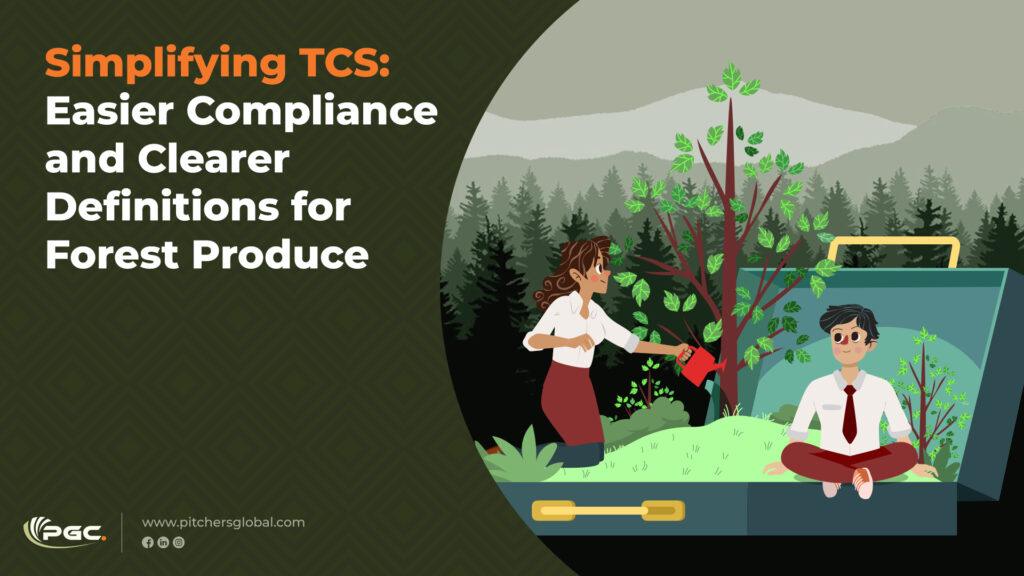Tax Collected at Source (TCS) can sometimes seem complicated, but recent changes, effective April 1, 2025, aim to make things smoother, particularly for businesses and those dealing with forest produce. These updates focus on reducing the compliance burden and clarifying key definitions.
One of the most significant changes is the removal of TCS on the sale of specified goods under Section 206C(1H) of the Income Tax Act. This measure is a welcome relief for businesses, as it eliminates a layer of compliance and simplifies transactions. It’s a clear move towards making business operations easier.
Another important area of focus is the definition of “forest produce.” Previously, the rules around TCS on forest produce could be a bit confusing. Now, the definition has been brought in line with the meaning found in existing State Acts or the Indian Forest Act of 1927. This harmonization makes it much clearer what constitutes “forest produce” for TCS purposes.
Simplifying TCS: Easier Compliance and Clearer Definitions for Forest Produce
Implications and Considerations:
- Reduced Compliance Burden: The removal of TCS on specified goods directly reduces the compliance burden for businesses, freeing up resources and simplifying transactions.
- Clarity and Consistency: The clarified definition of “forest produce” and the specific rules for timber create more clarity and consistency in the forestry sector, reducing ambiguity and potential disputes.
- Targeted Approach: The changes suggest a more targeted approach to TCS, focusing on specific areas and transactions where compliance is deemed most necessary.
- Impact on Businesses: Businesses, especially smaller ones, should benefit from the reduced compliance burden. Those in the forestry sector should carefully review the updated definitions and rules to ensure they are in compliance.
- Tax Planning: These changes should be considered in tax planning strategies, particularly for businesses dealing with high-value transactions or forest produce.
- Professional Advice: If you are unsure how these changes affect your business or personal finances, consulting with a tax professional is always recommended. They can provide personalized guidance and ensure you remain compliant with the latest regulations.

Furthermore, the application of TCS on forest produce has been refined. Going forward, TCS will only apply to “other forest produce” – that is, forest produce excluding timber and tendu leaves – that is obtained under a forest lease. This clarifies the scope of TCS and removes ambiguity. Previously, timber obtained by any mode (whether or not under a lease) attracted TCS. Now, only timber obtained outside a forest lease will have TCS.
The result of these changes is a more straightforward and less burdensome TCS system. By removing TCS on specified goods and clarifying the definition and application of TCS on forest produce, the government is aiming to simplify tax compliance and promote ease of doing business. These changes should be particularly beneficial for businesses involved in the sale and purchase of forest produce, providing greater clarity and reducing the administrative overhead associated with TCS.
Get in touch with Pitchers Global Today
